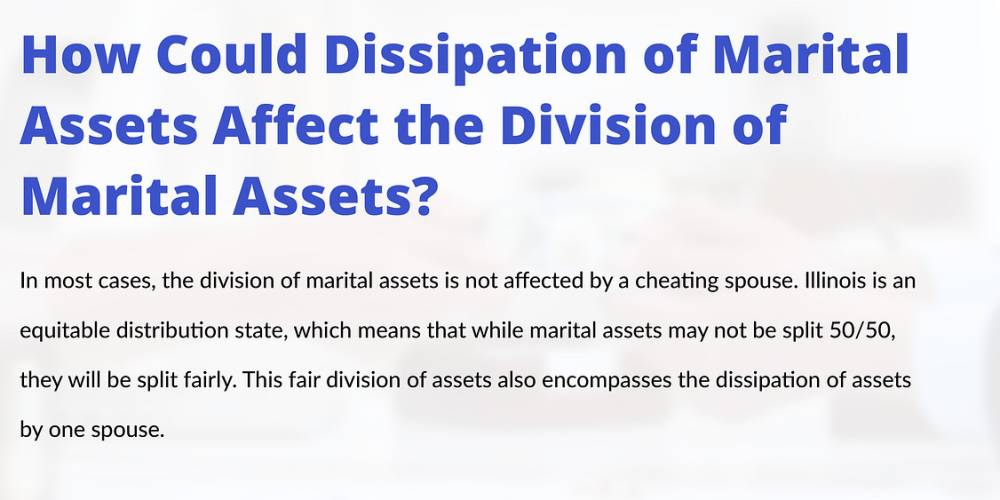Who Pays for Divorce If One Spouse Cheated?
 According to the American Psychological Association, between 20 and 40 percent of all divorces are caused by infidelity. That being said, while the discovery of an affair can be the catalyst that sets a divorce in motion, in most cases, there were other issues in the marriage prior to the affair. Marital problems that are not addressed can lead an unhappy spouse to turn to someone outside the marriage.
According to the American Psychological Association, between 20 and 40 percent of all divorces are caused by infidelity. That being said, while the discovery of an affair can be the catalyst that sets a divorce in motion, in most cases, there were other issues in the marriage prior to the affair. Marital problems that are not addressed can lead an unhappy spouse to turn to someone outside the marriage.
Approximately 40 percent of spouses who have ever cheated are separated or divorced, while only about 17 percent of those who have not cheated are separated or divorced. Overall, women are less likely than men to ask for a divorce when they find out their spouse has cheated. Infidelity in a marriage can obviously cause a lack of trust between spouses and may even be the primary reason for divorce. The ways that a cheating spouse impacts a divorce can be more subtle but do exist.
Even when the discovery of a spouse’s adultery has a profound effect on your marriage, the specific financial effects of having a cheating spouse during divorce are not as clear, usually occurring only under very specific circumstances. If you have questions regarding whether your spouse’s infidelity will affect any of the financial aspects of your divorce, speaking to an Oswego, IL family law attorney can be the right step to take to protect your future.
Is Illinois a No-Fault Divorce State?
All 50 states currently offer some form of no-fault divorce. This means that a spouse does not have to have a reason for wanting a divorce and can claim "irreconcilable differences." Most people believe that no-fault divorce is a much better way to divorce than claiming fault and having to prove that fault in court. Covenant marriage, which limits grounds for divorce, is only recognized in Arkansas, Arizona, and Louisiana, although Texas is also considering it.
Proponents of covenant marriage say it makes marriages stronger, although critics of the practice say it only traps spouses in unsafe marriages. Illinois became a no-fault divorce state in 2016 under Public Act 99-90. This eliminated all fault-based grounds for divorce, including substance abuse, impotence, habitual alcohol and drug use, abandonment, physical or mental cruelty, and adultery.
A no-fault divorce means reconciliation attempts have failed, and any future reconciliation attempts would be impossible or not in the best interests of the spouses or the family. No-fault divorce takes at least some of the inevitable conflict out of the divorce process, and in most cases, the court will not take allegations of marital misconduct into consideration when dividing marital property.
How Could Dissipation of Marital Assets Affect the Division of Marital Assets?
In most cases, the division of marital assets is not affected by a cheating spouse. Illinois is an equitable distribution state, which means that while marital assets may not be split 50/50, they will be split fairly. This fair division of assets also encompasses the dissipation of assets by one spouse.
Dissipation of marital assets occurs when one spouse improperly uses marital funds prior to the divorce. A spouse might have a serious gambling issue that he or she has spent thousands of dollars on while in the marriage. If this is the case, the judge may try to offset what the gambling spouse has wasted by awarding the other spouse a larger share of the marital assets.
Other issues, like alcohol or drug use or an out-of-control shopping habit, could have the same effect. Dissipation of marital assets is the only way infidelity can affect the division of marital assets during a divorce. A spouse who has cheated during the marriage, in and of itself, will not affect the division of marital assets. In other words, the judge will not punish a cheating spouse by awarding him or her a smaller amount of marital assets.
However, if one spouse spent significant marital assets during the marriage on another person involved in infidelity, this could affect the division of marital assets. Perhaps one spouse took his or her girlfriend/boyfriend on expensive vacations, bought them expensive gifts, or paid for an apartment or vehicle for the other person.
This is clearly a dissipation of assets since it did not benefit the other spouse in any way, and a judge will likely compensate for those dissipated marital assets by awarding the innocent spouse a larger share. Family courts take the dissipation of marital assets very seriously and will usually attempt to make the division of marital assets more equal financially as a result.

If a Spouse Cheats, Do You Have to Pay Him or Her Alimony?
Alimony, known as spousal support or spousal maintenance in Illinois, is another area where a spouse might think the infidelity of the other spouse would make a difference. Because Illinois is a no-fault divorce state, spousal support is determined by a number of factors – but infidelity is not one of them. Spousal support in Illinois is determined by the facts of each case, the needs of one spouse, and the ability of the other spouse to pay.
A spouse requesting spousal support must demonstrate that the payments are necessary to maintain his or her standard of living as established during the marriage. The basic formula for the amount of spousal support is calculated by taking 33 percent of the paying spouse’s net income minus 25 percent of the recipient’s net income, which equals the yearly spousal maintenance. The duration of the spousal support will depend on the length of the marriage.
Does Adultery Affect Child Custody or Child Support?
Child custody – known as the allocation of parental responsibilities and parenting time in Illinois, is generally not affected by the infidelity of one of the parents and is primarily concerned only with the child’s best interests. There are two situations where parental responsibilities and parenting time could be influenced by the infidelity of a parent.
One is when the person the parent cheated with is still in his or her life, and that person is considered a bad influence on the child. The other would be if the parent who committed infidelity also made many other bad decisions that would not be in the best interests of the child.
What About an Infidelity Clause in a Prenuptial or Postnuptial Agreement?
For those who have a prenuptial or postnuptial agreement, an infidelity clause may be a part of that agreement. Some prenuptial and postnuptial agreements include a clause that states if one spouse has an extramarital affair, he or she must waive the right to spousal support and/or forfeit a larger share of the marital assets. In the state of Illinois, these clauses are generally unenforceable.
Will My Cheating Spouse Have to Pay My Lawyer Fees for the Divorce?
Generally, the courts will not require a cheating spouse to pay the other’s lawyer fees for the divorce unless the spouse seriously dissipated marital assets, leaving the other unable to pay his or her lawyer’s fees. A spouse could be forced to pay the other’s legal fees associated with the divorce if he or she deliberately drags out the divorce by being uncooperative or filing frivolous motions.
Contact a Kendall County, IL Divorce Lawyer
If your spouse cheated during your marriage and dissipated marital assets, speak to an experienced Yorkville, IL divorce attorney from The Law Office of Matthew M. Williams, P.C.. Attorney Williams focuses his practice on mediation and collaborative divorce to help spouses get through the divorce in a more amicable manner while reducing costs. Call 630-409-8184 to schedule an initial attorney meeting.









